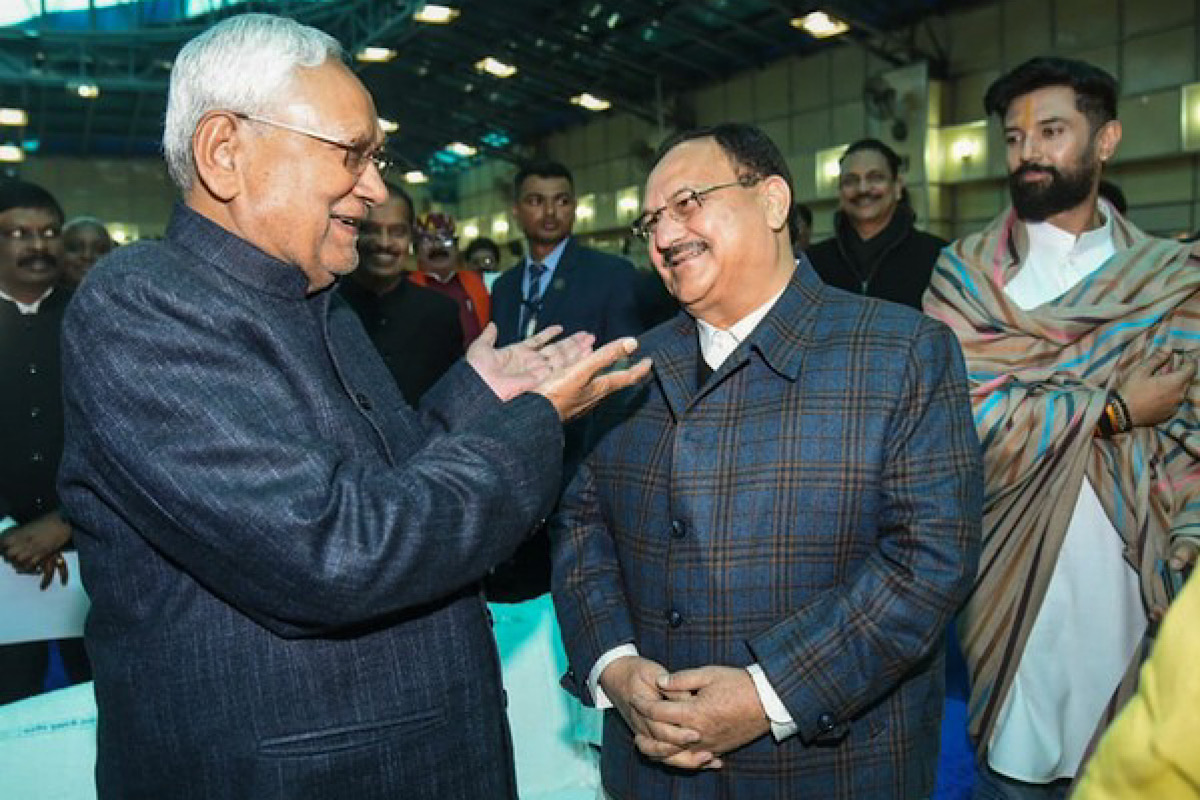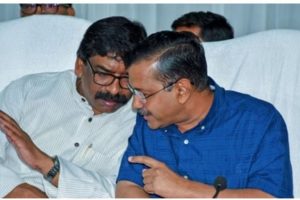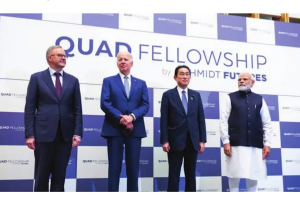In the political theatre of Bihar, Nitish Kumar has once again taken centre stage, resigning as the chief minister and being sworn in again after orchestrating a shift in alliances that has left many scratching their heads. This move by the Janata Dal (United) leader, characterised by its suddenness and strategic timing, highlights the fluid nature of loyalties in the state and the art of survival in the complex world of Indian politics. The JD(U) leader, a seasoned political player, has a history of alliance acrobatics, and this latest act is no exception.
His decision to join forces with the Bharatiya Janata Party (BJP) after a brief stint with the Rashtriya Janata Dal (RJD) is emblematic as much of his lust for power as it is of his reading of the political landscape. The unexpected resignation, followed by a swift realignment, has not only raised eyebrows but also fuelled accusations of betrayal from former allies. Mr Tejashwi Yadav, the erstwhile JD (U)-led Mahagatbandhan government’s former deputy chief minister from the RJD, offered a measured reaction, stating that the public would deliver a fitting response. He acknowledged the INDIA alliance’s strength while downplaying the impact of the departure of JD (U) from it. This pragmatism reflects an understanding that in politics, the game is always in flux, and alliances are often formed and dissolved based on shifting dynamics.
The INDIA alliance, despite the JD(U)’s departure, remains resilient according to Mr Yadav. His assertion that “the game has just started” hints at a long-term perspective, suggesting that the alliance is prepared to weather the storm. The reference to the JD(U) leader as a “tired chief minister” echoes the sentiment that perhaps this departure was anticipated, and the alliance was ready to adapt to the changing political winds.
On the other side of the political spectrum, the BJP, now the JD (U)’s new partner, faces its own set of challenges. The BJP’s previous characterisation of the JD (U) leader as “Paltu Ram” (a political turncoat) raises questions about the sincerity of political rhetoric. The fact that the BJP, despite earlier reservations, has welcomed the JD (U) back into its fold underscores the pragmatism that often trumps ideological posturing in Indian politics.
The blame game is in full swing, with Congress placing responsibility on the JD(U) for the disruption in the INDIA alliance. The JD (U) counters by pointing fingers at the Congress, accusing it of attempting to seize leadership within the alliance. These accusations reflect the inherent tensions and power struggles within political coalitions, where individual ambitions often clash with collective goals.
As Bihar braces itself for yet another chapter in its political saga, one cannot ignore the underlying theme of opportunism and survival that permeates these manoeuvres. The JD (U) leader’s ability to navigate these treacherous waters, switching alliances with strategic precision, is a testament to the intricate dance of power in Indian politics.











